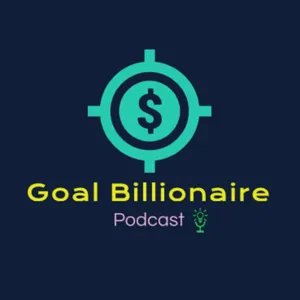Podcast Summary
Positioning Yourself for Success: Making good decisions and achieving success is not just about luck or intelligence. It's about prioritizing and taking control of the factors that influence the outcome, increasing the chances of extraordinary outcomes.
The key to making good decisions and achieving success lies in positioning yourself in a position of strength. It's not about being the smartest or luckiest person, but about taking control over the things you can influence. Just like in the example of my child's poor test grade, the outcome was not solely determined by his performance during the test, but also by the choices he made prior to it. By neglecting crucial factors like sleep, diet, and preparation, he set himself up for failure. This applies to all areas of life - whether it's in business, relationships, or personal goals. If we prioritize putting ourselves in the best possible position before taking action, we greatly increase our chances of achieving extraordinary outcomes.
Positioning, Preparation, and Automatic Rules: The Path to Success: By strategically positioning yourself, preparing well, and implementing automatic rules, you can achieve success and outperform even the most talented individuals. It's about making good decisions, sticking to your goals, and actively doing good things.
Positioning yourself in a good position and preparing well can often lead to better outcomes than relying solely on talent. By consistently making good decisions and operating from a position of strength, you can outperform even the most talented individuals who find themselves in poor positions. Moreover, you can turn desired behavior into default behavior by implementing automatic rules. These rules act as safeguards, reducing the reliance on willpower and making it easier to stick to your goals. Whether it's avoiding desserts or going to the gym regularly, creating and following these rules can help you achieve the things you want in life. It's not just about avoiding bad things, but also about actively doing good things.
The Power of Consistency in Creating Habits and Achieving Results: By committing to a daily workout and prioritizing it in our routine, surrounding ourselves with a supportive environment, and challenging popular beliefs, we can achieve our potential and attain better results.
Consistency is key. By making a commitment to work out every day, we eliminate the negotiation with ourselves and create a habit. This change in mindset shifts our focus from whether or not to go to the gym, to figuring out how to fit it into our daily routine. It doesn't mean we have to spend hours at the gym each day, but rather that we prioritize a daily workout, even if it's a shorter or modified session. Additionally, surrounding ourselves with a supportive environment, such as joining a group with similar goals, can help us stay on track. Lastly, we must be willing to go against the crowd and do what we believe is right, even if it's challenging or goes against popular belief. Ultimately, taking consistent action and pushing ourselves outside of our comfort zones is what leads to achieving our potential and attaining better results.
Prioritizing the Outcome over Being Right: Success requires letting go of the need to be right and focusing on achieving the desired outcome by embracing new ideas and perspectives.
We often prioritize feeling right over achieving the best outcomes. Our ego drives us to prove that we are right, even if it means ignoring evidence to the contrary. We become so focused on protecting our ego that we lose sight of what truly matters - the outcome. It's important to understand that we can't be right about everything all the time, and that's okay. Instead of channeling our energy into proving ourselves right, we should shift our focus to the desired outcome. By doing so, we open ourselves up to new ideas, perspectives, and possibilities. Success requires shamelessness and a willingness to embrace positive deviation. So let go of the need to be right and start prioritizing the outcome.
The Power of Self-Accountability: Taking responsibility for our actions and focusing on personal growth instead of blaming others is the key to achieving success and shaping a better future.
Focusing on the outcome, rather than our egos, is key to success. We must take responsibility for our actions and hold ourselves accountable, regardless of external factors or expectations. It may not always be our fault, but it is always our responsibility to do better. Seeking external rewards or blaming others only prevents personal growth and keeps us from truly commanding our own lives. By being self-accountable and taking control of our actions, we can make progress and improve our future outcomes. Clear thinking and adopting a mindset of self-accountability will reshape our thinking and provide us with the tools for lasting success.






